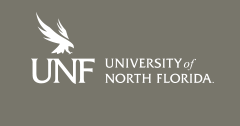Faculty Mentor
Chau Johnsen Kelly, PhD, Associate Professor
Faculty Mentor Department
Department of History
Associated Prize (or Other Information)
Undergraduate Writing Prize, Department of History
Abstract
Cuba has been an object of U.S. fascination since the early nineteenth century and the acquisition of the Louisiana Purchase. When Cuba rose up in revolution against Spain, the United States purposefully portrayed the struggle to the American public as a situation necessitating a U.S. intervention. This involved the making of political cartoons and emotional appeals of war accounts from the perspective of an American journalist, Richard Harding Davis. Once the United States and Spain entered a war in 1898, the manipulation of the image of Cuba shifted to portray the question of U.S. acquisition and the imperial anxieties involved. These questions, promoted by the media, were then put into conjunction with “The White Man’s Burden,” thus shifting public opinion and resulting in the Platt Amendment in 1902, which gave Cuba independence inlayed with heavy U.S. economic ties. This paper argues that the United States, as an expansionist imperial power, used the media to gain public support for its expansion into Cuba, and as a result of this expansion, underwent a shift in imperial identity, which resulted in the Platt Amendment and a new form of imperial expansion.
Recommended Citation
Sánchez, Amarilys
(2020)
"Propaganda and Media Portrayal: U.S. Imperialism and Cuban Independence from Spain and the United States, 1896-1903,"
PANDION: The Osprey Journal of Research and Ideas: Vol. 1:
No.
1, Article 7.
Available at:
https://digitalcommons.unf.edu/pandion_unf/vol1/iss1/7
Included in
American Politics Commons, American Popular Culture Commons, Diplomatic History Commons, International Relations Commons, Latin American History Commons, Other History Commons, Political History Commons, United States History Commons


